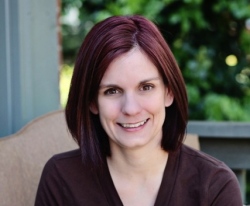“Presume Competence”
For four centuries, educators, and philosophers have encouraged teachers to begin instruction with student strengths and an understanding of students’ individual differences (see Dewey, 1938; Herbart, 1892; Pestalozzi, 1797). In this age of accountability, however, we begin with the end goal (state assessment data) in mind. The question today, though, is the same as the question in the age of Socrates, Locke, Dewey, Vygotsky, and so many others: What is the purpose of education? Is the purpose of education to build a well-informed democratic citizenry? Is the purpose of education to prepare people to be members of a society? Is the purpose of education to train for jobs that sustain the community? The answers to these questions are elusive because the purpose of education is, in my opinion, dependent on the strengths and interests of the individual.
Our classrooms are filled with children from diverse ethnic, linguistic, cultural, and socioeconomic backgrounds. Their strengths, abilities, and interests are equally diverse. Yet, we continue to hold each one accountable for the exact same skills and levels of proficiency; in predetermined areas of importance, without any regard for the critical individuality they each bring. Students with differing abilities serve as prime examples of missed opportunities to promote strengths-based education.
Access. Participation. Supports. These are the three pillars on which the foundation of including children with differing abilities in the general education learning environment has been built. However, I consistently interact with teachers, professionals, families, and students who view inclusion as the act of placing students with differing abilities in the same room as typical students. Voila! We are “doing” inclusion. Do not mind the fact that we have put all the children with Individualized Education Programs at one table with an instructional aide. Do not worry about the lack of interactions amongst the students or about the lack of academic and behavioral expectations for the students with differing abilities. Inclusion is only achieved by having high expectations for each student in the class, by “presuming competence” in each student. I was fortunate enough to have Dan Habib, creator of “Including Samuel,” Skype in to an introduction to special education course I co-taught during my doctoral program. When the pre-service general education teachers asked Mr. Habib what he wished teachers understood before having his son Samuel in their class, Mr. Habib responded, without hesitation, “Presume competence.” This statement stuck with me.
I contend that inclusion is not something we do; it is not something we can create. It is a belief that every child has strengths to contribute to the classroom community and we, as teachers, possess the power to bring those strengths forward. By changing our lens from a focus on deficits and remediation to an emphasis on strength and individual contribution, we bring forth the tenets of inclusion in a way that is meaningful for each child.
What does it mean to be meaningfully included in school, in community, in life? Owen Flanagan in The really hard problem: Meaning in a material world, writes:
Meaningful human lives involve being moral, having true friends, and having opportunities to express our talents, to find meaningful work, to create and live among beautiful things, and to live cooperatively in social environments where we trust each other. If we have all these things, then we live meaningfully by any reasonable standard. If we have only some of them, we live less meaningfully, and if we lack all these things, especially the first two, our life is meaningless.
Flanagan is a philosopher, not an educator, and his criteria for meaningful human lives strike me as a measurement for meaningful inclusion of students with differing abilities. As humans, we are much more alike than different, regardless of diagnosed conditions, atypical development, or different cognitive abilities. We are each unique with strengths, weaknesses, preferences, and social desires. Inclusion allows for those individual characteristics to contribute to the greater good of the classroom’s social and learning environment.
I know what you are thinking. You are thinking these feel good sentiments do not translate into teaching and learning outcomes for each student. You are thinking there are very real competencies for which each child is accountable and that strengths and uniqueness will not be enough to demonstrate those competencies. You are thinking that in philosophy this makes sense but it just will not work in practice within the context of schools. You may even be thinking, “She has never met MY students!” While I understand the resistance and the deeply entrenched deficit-focused model within which we work, I implore you to consider the possibilities. It is not as though we are experiencing tremendous success in achieving learning outcomes with our current strategies. What if strengths-based approaches to teaching and learning are effective in promoting what students know and can do?
Recently, I was invited to talk about inclusive practices and special education with Music Education students. During this guest lecture I introduced them to this idea; I said to the 16 very talented musicians, “The person who has a disability in this room is me because I cannot carry a tune in a bucket.” They laughed and assured me that I could, I just needed proper instruction. In a room full of pre-service music educators, my lack of musicality served as an example of differing abilities. No one would consider my tone deafness a disability but it is certainly a weakness that would require targeted instruction to remediate and even then, I believe, my potential is extremely limited. Fortunately, I have other strengths. And so do you. As does every student in your classroom. Find them. Celebrate them. Develop them. “Presume competence.”
Jen Newton, Ph.D. is an assistant professor in Inclusive Early Childhood Education at James Madison University and a 2011 graduate of the doctoral program in Special Education at the University of Kansas.

